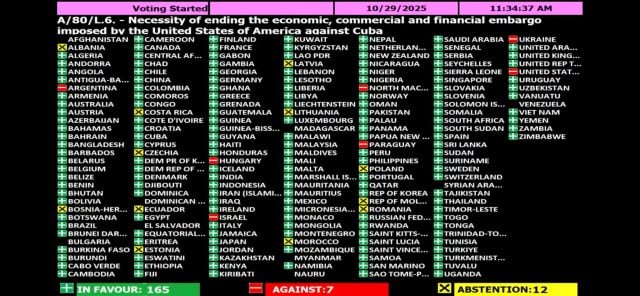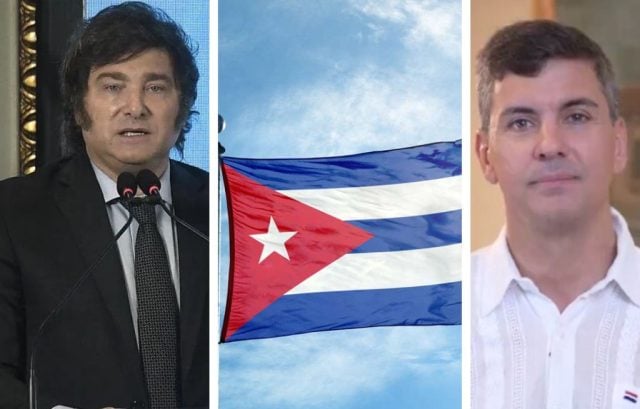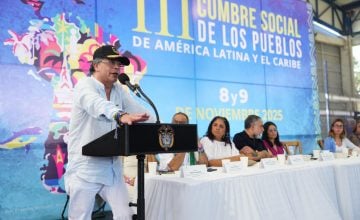Original article: Por amplia mayoría: Asamblea General de la ONU vuelve a exigir el fin del bloqueo de EEUU a Cuba
The United Nations General Assembly has once again passed a resolution calling for the end of the United States’ embargo against Cuba, with a decisive vote of 165 in favor, 12 abstentions, and only 7 against.
The countries that opposed lifting the embargo included Argentina, Hungary, Israel, North Macedonia, Paraguay, Ukraine, and the United States itself. Meanwhile, the abstaining nations were Albania, Bosnia and Herzegovina, Costa Rica, Czech Republic, Ecuador, Estonia, Latvia, Lithuania, Morocco, Moldova, Romania, and Poland.
Following the vote, Cuban President Miguel Díaz-Canel emphasized that «the majority of the world voted once more alongside Cuba, for life.»
“Cuba, dignified and resilient, unafraid of the revolting, brutal, cynical, and deceitful empire, has once again triumphed over the genocidal blockade that has lasted for six decades,” the Cuban leader stated on his social media account X.
Cuba’s Foreign Minister Bruno Rodríguez pointed out in his presentation to the UN that «the impact of such aggression is not only economic. It is meticulously designed to affect the social and humanitarian conditions of millions of people.»
The Cuban chancellor presented tangible effects of the embargo, including systematic denial of access to international banking systems for payments and collections, which severely restricts Cuba’s foreign trade, and the inability to secure financing, investment, remittances, technology, supplies, and critical services, notably in health care.
On this matter, the foreign minister shared specific cases, such as a 29-year-old woman with cardiomyopathy who requires an automatic defibrillator that Cuba cannot obtain, and a 6-year-old boy needing hip surgery, but cannot import the necessary bone graft due to the embargo’s restrictions.
El Ciudadano










